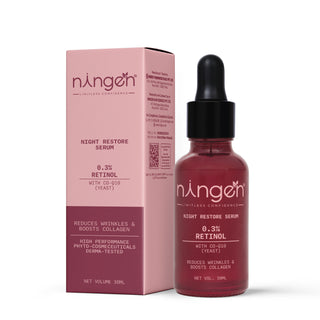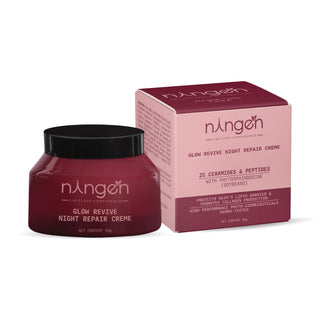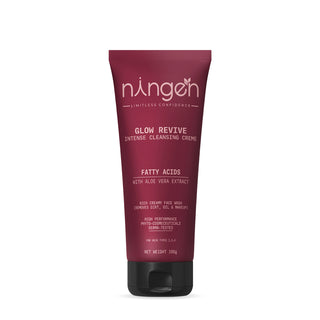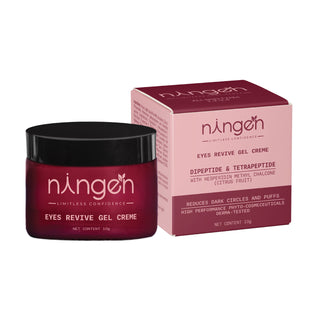TL;DR:
If you’ve been wondering how long retinol takes to work, most users start seeing smoother skin in 2–4 weeks, acne reduction within 6–8 weeks, and wrinkle and collagen improvements in 10–12 weeks. Results depend on strength, skin sensitivity, formulation type (encapsulated vs. traditional), consistency, and support products like a gentle cleanser and nourishing moisturizer. Photosensitivity is real—SPF 50+ is non-negotiable.
Why Everyone Is Asking: How Long Does Retinol Take to Work?
Retinol is everywhere right now. Social media, skincare blogs, dermatologist videos, you name it. People hear that it can fix wrinkles, fade dark spots, smooth texture, clear acne, and basically transform their skin. But here’s the catch: retinol doesn’t work overnight. So most people end up wondering, “How long does retinol actually take to work?” This question has become super common because everyone wants to know when they’ll start seeing real changes. Will it take a few days? A few weeks? Why isn’t anything happening yet? The truth is, retinol works slowly and steadily, and the timeline depends on your skin type, the frequency of use, and the strength of the product. Once you understand the expected timeline, it becomes much easier to stay patient, avoid irritation, and persevere long enough to see the smoother, clearer, healthier skin that retinol is known for.
This blog on how long retinol takes to work eliminates the confusion with clear timelines, proven mechanisms, and practical tips to reduce irritation, purging, or inconsistent outcomes.
Also read: How to know your skin type?
In this Guide;
How Does Retinol Work on Skin?
Retinol Benefits in Anti-Aging Skincare
How Long Does Retinol Take to Work?
How Retinol Works on Acne-Prone Skin
How Does Retinol Work on Skin?

Retinol, a Vitamin A derivative that accelerates cell turnover & collagen renewal, powering multiple corrective pathways, works by helping your skin renew itself faster from the inside out. Once applied, it encourages your skin cells to shed and replace themselves more quickly, which leads to a smoother texture and fewer clogged pores. It also activates the cells in the deeper layers of your skin (called fibroblasts) to produce more collagen and elastin, two key proteins that keep your skin firm and youthful. Over time, this helps reduce fine lines, fade dark spots, even out your skin tone, and improve overall radiance. In simple terms, retinol teaches your skin to behave younger, healthier, and more balanced.
Retinol Benefits in Anti-Aging Skincare
Retinol is one of the most trusted ingredients for anti-aging because it helps your skin renew itself faster and stay firm for longer. It boosts collagen, the protein that keeps your skin smooth and tight, while reducing fine lines, wrinkles, and rough texture. It also evens out dark spots caused by sun damage and makes your skin look brighter and healthier. With consistent use, retinol can noticeably improve your skin’s overall appearance and give it a more youthful glow.
Core Anti-Aging Advantages:

Actually How Long Does Retinol Take to Work?
Retinol doesn’t deliver instant results, but when you understand the timeline, it becomes much easier to trust the process and stay consistent. In the first 1–2 weeks, most people notice a bit of dryness, light flaking, or sensitivity, this simply means your skin is adjusting and cell turnover has started. By weeks 3–4, your skin usually begins to feel smoother with less congestion, and your overall tone starts to look more even. Around weeks 6–8, many notice fewer breakouts, faster healing, and a clearer complexion as post-acne marks start to fade. By weeks 10–12, retinol’s anti-aging benefits really kick in, with visible softening of fine lines and improved firmness. And by week 16 and beyond, you reach the peak phase, where collagen production is stronger, texture is refined, and long-term results become more noticeable. The real secret is consistency; using retinol regularly at the right strength works far better than rushing in with a strong formula. Slow, steady, and consistent truly wins with retinol.

Also read: A beginner’s guide to start with Retinol.
How to Choose the Best Retinol Cream for Sensitive Skin?
If sensitivity has stopped you before, this time you’ll do it right.
Choose Formulas With:
✔ 0.1%–0.3% retinol to start
✔ Encapsulated/time-release delivery
✔ Ceramides, squalane, panthenol, peptides for barrier support
✔ Fragrance-free, essential-oil-minimal profile
✔ Suitable for rosacea-prone & barrier-impaired users
Suggested Routine (Derm-Approved)
1️⃣ Gentle cleanser
2️⃣ Buffer layer of moisturizer
3️⃣ Pea-size retinol on dry skin
4️⃣ Seal with ceramide or peptide moisturizer
5️⃣ Morning: SPF 50+ always
How Retinol Works on Acne-Prone Skin
Retinol is considered one of the most effective acne treatments because it tackles the root causes of breakouts, not just the surface symptoms.
Here’s how each benefit plays a role in clearer, healthier skin:
Acne-Specific Benefits
-
Prevents microcomedone formation: Microcomedones are the tiny, invisible clogs that eventually turn into whiteheads, blackheads, or pimples. Retinol speeds up cell turnover, stopping these clogs before they even form. By keeping pores clear at the earliest stage, it dramatically reduces the amount of new acne that shows up.
-
Reduces inflammatory lesions: Inflamed pimples, those red, painful bumps—happen when pores get clogged and bacteria grow. Retinol helps calm this inflammation and prevents buildup inside the follicle. Over time, breakouts become smaller, less painful, and less frequent.
-
Clears post-acne hyperpigmentation: Dark spots left behind after acne can linger for weeks or months. Retinol helps fade these marks by encouraging faster skin renewal and breaking up excess pigment. The more consistently you use it, the quicker your skin tone looks even and clear.
-
Regulates sebum without over-stripping: Instead of drying your skin out, retinol works with your skin to balance oil production. This helps reduce shine and clogged pores while keeping the barrier healthy. It’s a smarter, gentler way to manage oiliness compared to harsh drying products.
-
Helps minimize acne scars over time: Retinol supports collagen production, which helps improve skin texture from past breakouts. With steady use, shallow acne scars gradually soften, making the skin look smoother and more refined.
Best pairings for acne-prone users:
-
Niacinamide
-
Bakuchiol
-
Azelaic Acid
-
Salicylic Acid (alternate nights)
-
Non-comedogenic moisturizer
Also read: Benefits of Using Bakuchiol and Retinol Together for Anti-Aging.
Proven Best Practices for Faster Results

Final Takeaway
Retinol may not deliver overnight results, but it remains one of the most powerful, well-studied skincare ingredients for real, visible change. Whether your goal is smoother texture, fewer breakouts, or softer fine lines, understanding how long retinol takes to work helps you stay consistent and trust the journey. With the right strength, gentle onboarding, supportive moisturizers, and daily SPF, retinol can completely transform your skin over time, giving you clearer, brighter, firmer, and healthier-looking skin that keeps getting better with every week of use.
Frequently Asked Questions
Q1. How long does retinol take to work on wrinkles?
Most users see wrinkle reduction between 10–12 weeks.
Q2. How long does retinol take to work on acne?
Expect visible improvements in 6–8 weeks.
Q3. Does retinol cause purging?
Yes, temporary purging is possible within the first 2–4 weeks.
Q4. Can sensitive skin use retinol?
Yes, with low strength, slow introduction, and barrier-supportive ingredients.
Q5. Should I moisturize before or after retinol?
Both methods can work—moisturizer sandwiching reduces irritation.
Q6. Should I use retinol every day?
Eventually, yes, but begin with 2–3 nights per week.
Q7. Can retinol reduce hyperpigmentation?
Yes. It accelerates melanin turnover.
Q8. Is retinol safe in summer?
Yes, but SPF 50+ is mandatory.
Q9. Which strength of retinol is best for beginners?
0.1–0.3%, preferably encapsulated.
Q10. Can retinol shrink pores?
It can improve pore visibility by boosting skin structure.
-
American Academy of Dermatology – https://www.aad.org/public
-
PubMed (Retinol Research) – https://pubmed.ncbi.nlm.nih.gov
-
British Association of Dermatologists – https://www.bad.org.uk
-
Journal of Cosmetic Dermatology – https://onlinelibrary.wiley.com/journal/14732165
-
Cleveland Clinic – https://my.clevelandclinic.org











